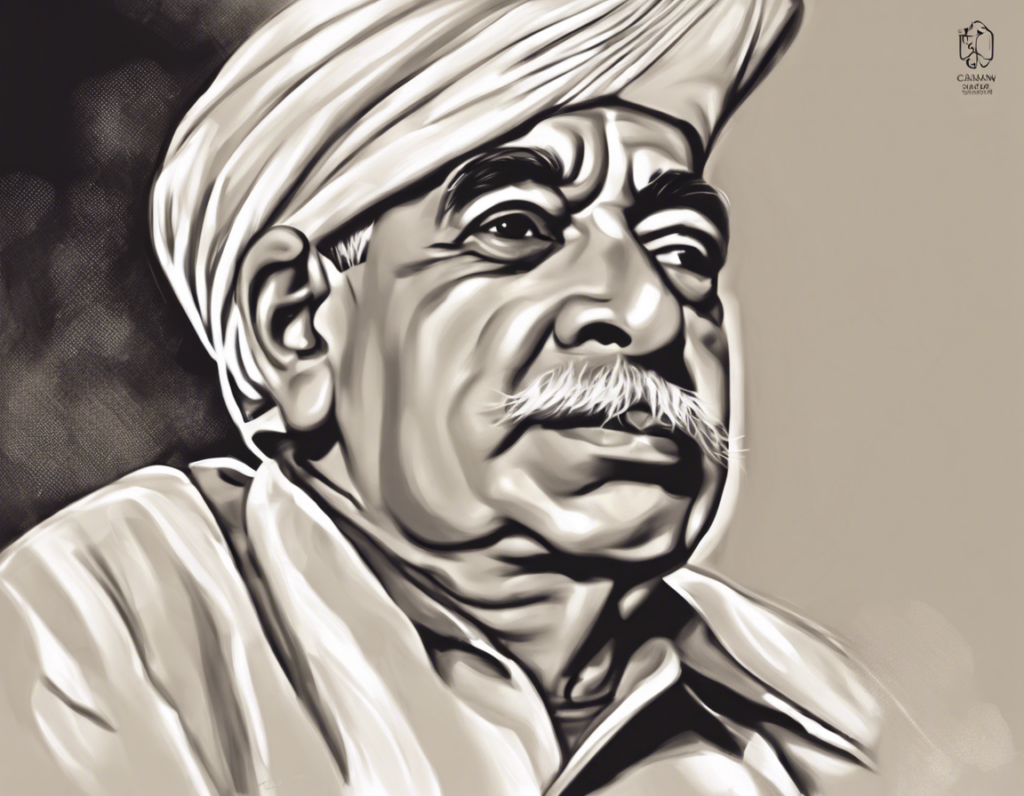Exploring the Legacy of Chaudhary Charan Singh: A Visionary Leader.
Chaudhary Charan Singh, a name that resonates deeply in the political landscape of India, was a visionary leader whose legacy continues to inspire generations. Born on December 23, 1902, in a small village in Uttar Pradesh, Chaudhary Charan Singh rose to prominence as a prominent political figure, serving as the 5th Prime Minister of India and leaving an indelible mark on the country’s political and agricultural spheres.
Early Life and Political Journey
Chaudhary Charan Singh’s early life was steeped in rural agrarian traditions, which deeply influenced his political ideology. He started his political career in the 1930s, championing the cause of farmers and the marginalized sections of society. Known as the “champion of India’s peasants,” Chaudhary Charan Singh consistently fought for the rights of farmers and worked towards alleviating their agrarian distress.
Tenure as Prime Minister
Chaudhary Charan Singh assumed office as the Prime Minister of India on July 28, 1979, amidst a tumultuous political climate. His tenure was marked by several significant initiatives aimed at empowering farmers and addressing rural challenges. The most notable among these was the introduction of the land reforms bill, which sought to redistribute land from large landowners to the landless peasants, thereby ushering in greater equity in land ownership.
Agricultural Reforms and Legacy
Chaudhary Charan Singh’s legacy is synonymous with his relentless advocacy for agricultural reforms. His tenure witnessed the formulation of policies that aimed at strengthening the agricultural sector, ensuring fair prices for agricultural produce, and enhancing the economic well-being of farmers. The implementation of the Zamindari Abolition Act and Tenancy Reforms under his leadership brought about significant socio-economic changes in rural India.
Role in Social Justice and Empowerment
Apart from his contributions to the agricultural sector, Chaudhary Charan Singh was also a staunch advocate for social justice and empowerment of marginalized communities. He championed the cause of backward classes and worked towards ensuring their representation in political and social spheres. His commitment to inclusivity and equitable development remains a cornerstone of his legacy.
Enduring Influence and Relevance
Chaudhary Charan Singh’s impact transcends his time, with his ideas and principles continuing to guide policymakers and social reformers. His emphasis on agrarian reforms, social justice, and empowerment serves as a blueprint for addressing contemporary challenges facing India’s rural and marginalized communities. As the country grapples with issues of farmer distress, land ownership, and socio-economic inequality, Chaudhary Charan Singh’s vision remains a source of inspiration and guidance.
Frequently Asked Questions (FAQs)
Q: What were Chaudhary Charan Singh’s key contributions to the agricultural sector?
A: Chaudhary Charan Singh introduced land reforms, advocated for fair prices for agricultural produce, and implemented policies aimed at empowering farmers.
Q: How did Chaudhary Charan Singh impact social justice initiatives?
A: Chaudhary Charan Singh worked towards empowering marginalized communities, especially the backward classes, and ensured their representation in various spheres.
Q: What was the significance of the Zamindari Abolition Act introduced during Chaudhary Charan Singh’s tenure?
A: The Zamindari Abolition Act aimed at redistributing land from large landlords to landless peasants, fostering greater equity in land ownership.
Q: How does Chaudhary Charan Singh’s legacy continue to influence contemporary policymakers?
A: Chaudhary Charan Singh’s emphasis on agricultural reforms, social justice, and empowerment provides a guiding framework for addressing current challenges in India’s rural and marginalized communities.
Q: Why is Chaudhary Charan Singh often referred to as the “champion of India’s peasants”?
A: Chaudhary Charan Singh’s unwavering commitment to advocating for farmers’ rights and addressing agrarian distress earned him the title of the “champion of India’s peasants.”
